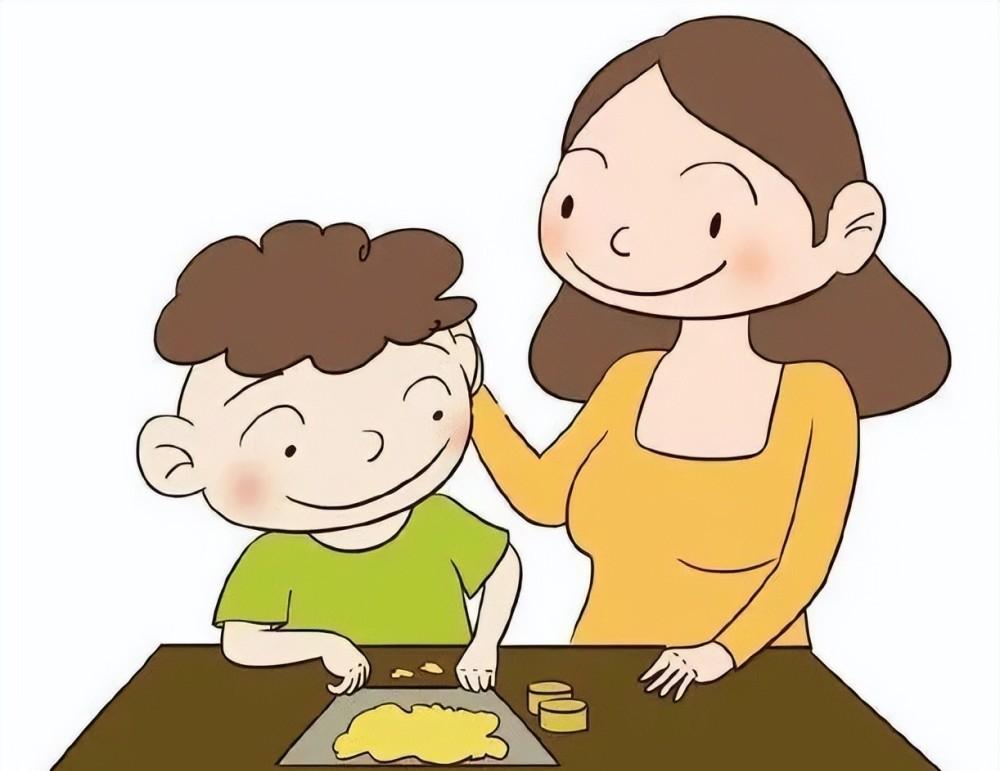We take the "Learning and Development Guidelines for 3-6 Year Old Children" issued by the Ministry of Education as a reference to see what aspects of children's physical and mental condition capabilities are included, what the development rules of each aspect are, and what the corresponding recommendations are.
The development rules of other aspects of the ability are shown below, click to directly:
What are the rules of a child's social development? When will I start teaching social skills?

Goal 1 Have a healthy posture
Educational Recommendations:
1. Provide children with nutritious and healthy diets.
Refer to the "Dietary Guidelines for Pregnant, Lactating Women and Children Aged 0-6 in China", provide children with a variety of foods such as cereals, vegetables, fruits, meat, milk, eggs, soy products, etc., with a balanced mix.
The cooking method should be scientific, and as little frying, grilling and salting as possible.
2. Ensure that children sleep 11 to 12 hours a day, and their noon sleep should generally reach about 2 hours.
Nap time can be appropriately reduced according to the child's age, seasonal changes and individual differences.
3. Pay attention to the posture of young children and help them form the correct posture.
Remind young children to maintain the correct posture of standing, sitting and walking; if they find abnormal bone development such as figure-eight feet, circled legs, and hunchbacks, they should seek medical treatment in time.
Tables, chairs and beds should be suitable. The height of the chair is appropriate for the children to be able to land naturally on the ground when they write and the thighs are basically level; the height of the table is suitable for the body to sit straight, not hunched over and not shrugging when writing; the bed should not be too soft.
4. Conduct health checks for young children every year.
Goal 2: Emotional stability and happiness
Educational Recommendations:
1. Create a warm and relaxed psychological environment, so that children can form a sense of security and trust.
Maintain a good emotional state and influence young children with positive, pleasant emotions.
Treat young children with appreciation. Pay attention to the advantages of young children, accept their individual differences, and do not simply make horizontal comparisons with peers.
When young children do something wrong, they should deal with it calmly, do not scold them, let alone scold.
2. Help young children learn to properly express and regulate emotions.
Adults express their emotions in an appropriate way and set an example for young children. If you are angry, you don't lose your temper and don't get angry with people.
Adults and toddlers talk about what they are happy or angry about together, and encourage young children to share their emotions with others.
Allow young children to express their emotions and give appropriate guidance. For example, when a toddler loses his temper, he is not hard to suppress, and it is acceptable to tell him what behavior he has after he calms down.
When children are found to be unhappy, take the initiative to ask about the situation and help them resolve negative emotions.
Goal three: Have a certain ability to adapt
Educational Recommendations:
1. Ensure children's outdoor activity time and improve children's ability to adapt to seasonal changes.
The outdoor activity time of young children is generally not less than two hours a day, of which the physical activity time is not less than 1 hour, and it should be insisted on at the turn of the seasons.
The season or area where the temperature is too hot or too cold should be adapted to local conditions, choose a time period with the appropriate temperature to carry out outdoor activities, and can also appropriately reduce the time of activity according to the change of temperature and the individual differences of young children.
2. Often play with young children such as hand-held circles, swings, and swivel chairs, so that children can adapt to slight swings, bumps, and rotations, and promote the development of their balance function.
3. Exercise children's ability to adapt to changes in the living environment.
Pay attention to the situation of children's diet, sleep, play and other aspects in the new environment, and take corresponding measures to help them adapt to the new environment as soon as possible.
Often bring young children into contact with different interpersonal environments, such as participating in relatives and friends gatherings, playing with unfamiliar children, so that young children can adapt to new interpersonal relationships more quickly.
Health refers to a person's physical, psychological and social well-being. The early childhood stage is a period of extremely rapid physical development and functional development of children, and it is also an important stage for forming a sense of security and optimism.
A well-developed body, pleasant emotions, a strong physique, coordinated movements, good living habits and basic living abilities are important signs of children's physical and mental health, and are also the basis for learning and development in other fields.
After reading today's content, what are your thoughts? Welcome to leave a comment ~